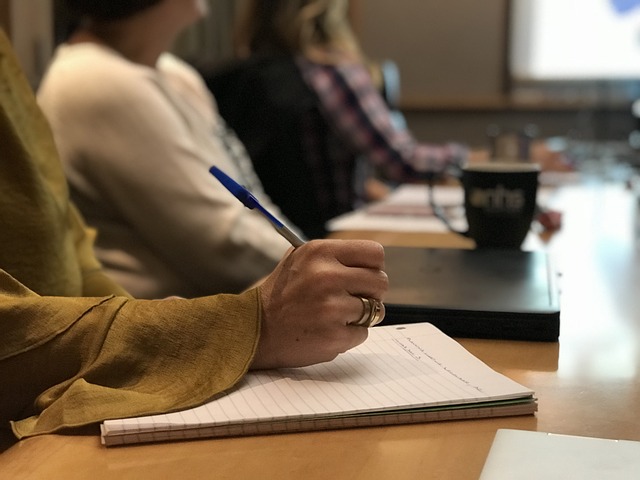Answers To Common Home Mortgage Questions From Your Calgary Mortgage Brokers

Chapter 1
Owning your own home is something to be proud of. Most folks who wish to purchase a house will need to get a mortgage. The loan process takes time and can be confusing. Read this article to gain some knowledge about mortgage loans.

If you know you want to apply for a home loan with a Calgary Mortgage Broker, get ready way before you plan on doing it. Your finances must be under control when you are house hunting. It means building a bit of savings and raising your credit score. Waiting too long can hurt your chances at getting approved.
A solid work history is helpful. Many lenders expect to see work history of two years or more in order to grant a loan approval. Switching jobs a lot can result in your loan being denied. Never quit your job when you apply for a loan.
Regardless of where you are in the home buying process, stay in touch with your lender. Don't give up just because your finances are dire - your lender will want to work with you, if you talk to them about the situation. It can never hurt to speak with your lender to see what they can do for you.

Any change that is made with your finances can make it to where you get rejected for your mortgage application. You should have a stable job before applying for a mortgage. If you're in the process of trying to get a loan, make sure you don't switch jobs before you're given one. Lenders will look to see how long you've been in your job position.
Make certain your credit history is in good order before applying for a mortgage. Lenders carefully scrutinize credit histories to ascertain good risks. If you've had poor credit, do whatever it takes to fix it so your loan is not denied.
Do not slip into depression if you are denied a loan. Instead, go seek out the services of another lender. Every lender is going to have a certain barrier you must pass through to get your loan. Applying to multiple lenders can even get you a better rate.
Think about hiring a consultant for help with the mortgage process. They will help you get a great rate. They'll also check out the terms to ensure that they are in your favor as well.

Before you buy a home, request information on the tax history. This is important because it will effect your monthly payment amounts since most property taxes are taken from escrow. Sometimes property taxes are a lot higher than you may imagine at first. This can turn into a real surprise.
Do your research to find interests rates and terms that are the best for you. Banks want to lock in a high rate whenever possible. Don't fall victim to this. Shop around at other financial institutions so you have several options to choose from.
Ask for help when you have difficulty with your mortgage. Consider seeking out mortgage counseling. There are many private and public credit counseling groups available. This will help you avoid foreclosure. Contact your local HUD office to find a counselor near you.
An ARM is the acronym for an adjustable rate mortgage. It is what its name implies. The rate on your mortgage fluctuates depending on the current interest rates. This could increase the rate of interest that you pay.
If there are issues associated with obtaining a mortgage from either a bank or a credit union, you may want to consider contacting a mortgage broker. Mortgage brokers often are able to obtain financing other lenders cannot obtain. They work with different lenders to get the best option for you.

Avoid variable interest rate mortgages. With a variable rate, your interest can increase dramatically and raise your mortgage payment. You could possibly lose your home if you can't afford it.
If you don't mind paying more on your mortgage payment, consider taking out a 15 or 20 year loan instead. Lower interest rates are one of the great benefits of taking a loan with a higher payment and shorter term. You might be able to save thousands of dollars by choosing this option.
Make sure that your savings are abundant prior to applying for your first mortgage. Cash on hand will be necessary to cover the down payment, closing costs, and other miscellaneous expenses. The more you have for the down payment, the less you have to pay in interest later.
If your credit is bad, save a lot towards a down payment. Three to five percent is common, but twenty will get you the very best deal.

Don't be afraid to ask questions of your broker. It is really essential that you always understand what goes on. Give your broker all of your phone numbers, your email address and any other way they can contact you. Check in with your broker often to help the process move along more quickly.
Getting a secured interest rate is important, but there are other things to think about. Different lenders tack on different fees that must be addressed. This can include closing costs and approval fees. Get multiple quotes before making a decision.
Figure out your price range ahead of time, before actually applying with a mortgage broker. If you get approved for a loan that is over budget then there isn't much you can do to lower that payment. Just be careful not to bite off more than you can chew. If you overextend yourself, you could end up in serious debt or worse.
If you do not really have a credit history, you will have to get creative when it comes to getting a loan. Keep payment records for up to a year. If you have proof of paying all of your bills, lenders may approve your loan.
Before you buy a home, you need a home mortgage. Getting a mortgage is a complex process and it is important to learn as much as possible about loans before you decide to finance your home. Use this information to get the loan you want.
